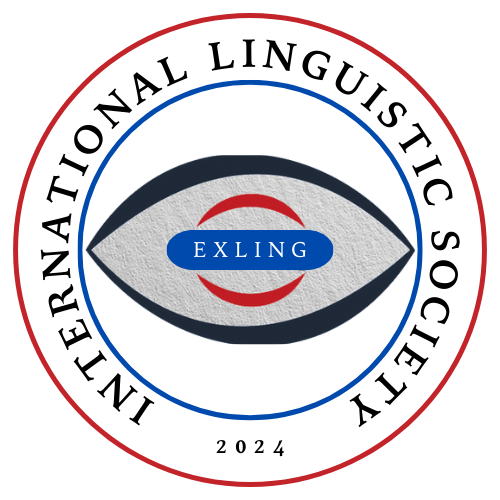15th International Conference of Experimental Linguistics
23-25 October 2024, Paris, France
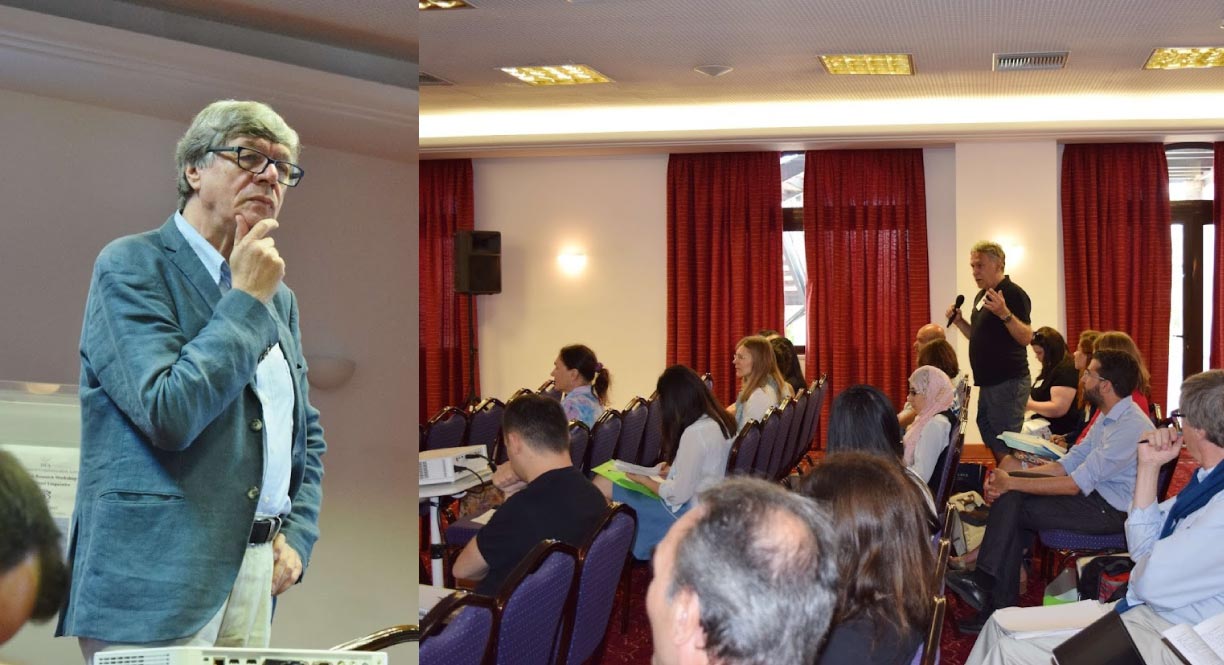
The annual ExLing Conference, hosted by the ExLing Society, takes place at various locations around the globe.
The conference features a diverse range of activities, including keynote speeches, special sessions, oral and poster presentations, and language technology exhibitions. We welcome abstracts and papers covering all areas of experimental linguistics.
The ExLing Conference offers a hybrid format, accommodating both in-person and remote participants. Join us to connect with leading experts and explore the latest advancements in the field of experimental linguistics.

The ExLing Society cordially invites you to participate in the International Conference of Experimental Linguistics, ExLing 2024 Paris, which will take place from the 23 rd to the 25 th of October 2024 in Paris, France. This is our forth gathering in Paris, where conference participants will have the opportunity to relish the rich cultural heritage of the city of light and the esteemed institutions therein.
ExLing 2024 Paris serves as a platform for fostering the global exchange of innovative ideas and methodological approaches to research and the production of linguistic knowledge. Distinguished keynote lectures will be delivered by some of the world’s foremost scholars in the field of the linguistics, expanding the horizons of language study and applications.
Special sessions will provide a focused context for discussions on Experimental Phonetics, Language Education, and Language Pathology, along with key areas in experimental linguistics including phonetics, phonology, morphology, syntax, semantics, pragmatics, and text analysis. Additionally, the conference will explore interdisciplinary approaches in language acquisition, psycholinguistics, sociolinguistics, and language technology.
We are delighted to announce our esteemed keynote speakers:
Mirjam Ernestus, Radboud University, The Netherlands
Valerie Shafer, City University of New York, US
Jenny Thomson, University of Sheffield, UK
ExLing 2024 Paris will be a hybrid conference, offering opportunities for both in-person and online participation. In addition to the keynote lectures, the conference will feature poster presentations and a limited number of oral presentations. Online participation allows for remote access to keynote and oral presentations. All accepted abstracts will be included in the annual ExLing proceedings series.
We extend a warm invitation to researchers and research groups engaged in any area of the Experimental Linguistics and related applications to submit their one-page abstracts for consideration at ExLing 2024 Paris.
Submit your one-page abstract by:
Extended deadline: 12 September 2024
Accepted papers for ExLing 2024 Paris will be included in three types of publications:
ExLing 2024 proceedings
ExLing YouTube Channel
Additional Publications
All accepted papers, regardless of their type of participation, will be published online in the ExLing proceedings Series. Selected presentations will be uploaded to the ExLing Society YouTube Channel.
Additional publications will also be considered, including special issues in established journals.
Publication Ethics
Publication Standards
Authors of original research should provide an accurate description of the theoretical and experimental background, followed by methodology specifics, results, and an objective discussion of the significance of the work.
Authorship
Authorship should be limited to those who meet the following criteria: They have made a significant contribution to the conception, design, or execution of the reported research. They have authored the manuscript or revised it critically. Others who have made substantial contributions to the research, such as providing technical help, writing and editing assistance, and general support, but do not meet the criteria for authorship, should not be listed as authors but should be acknowledged. The corresponding author should ensure that all appropriate coauthors are included in the paper and that all coauthors have seen and approved the final version of the paper and have agreed to its submission for publication.
Originality and plagiarism
Authors should ensure that they have written and submitted only entirely original works. If they have used the work and/or words of others, these works must be cited and/or acknowledged appropriately. Publications that have influenced the nature of the work reported in the manuscript should also be cited. Plagiarism may take many forms, from copying or paraphrasing substantial parts of another’s paper to claiming results from research conducted by others. Plagiarism in any form constitutes unethical publishing behavior and is strictly unacceptable.
Acknowledgments
Authors should properly acknowledge the contributions of others and cite publications that have influenced the reported work. Authors should not use information obtained while providing confidential services, such as refereeing manuscripts or grant applications unless they have obtained explicit written permission from the author(s) of the work involved. Any financial support, scholarships, or economic support related to the reported research should also be explicitly stated.
Each contributor to the conference may appear as a single author of only two papers and as a co-author of two additional papers. Up to four authors are recommended. Submitted abstracts, limited to one page and a maximum of 500 words (excluding author name(s)), should address the following criteria:
Abstract layout guidelines
Title of paper
Keep the title as concise and closely related to the paper’s content as possible. The abstract should not exceed one page, including references.
Object of Study
Start with a brief description of the object of study or investigation, along with the theoretical context. State your questions or hypotheses in simple terms, avoiding overly technical terminology. In short, explain what you have done.
Methodology
Summarize the key aspects of your methodology, including subjects, materials, technological context, and anything essential for readers to understand your work. In short, explain how you conducted your research.
Results
Summarize your results straightforwardly, especially in relation to your questions or hypotheses. Avoid intricate details, including statistics, which may require extensive reader review. In short, describe what you have found.
Conclusions
Draw explicit conclusions from your results. References References in abstract submissions are optional and can be omitted. It’s preferable to focus on your own work rather than referencing the work of others in this concise space.
Submit your one-page abstract by – Extended deadline: 12 September 2024
General chair
Antonis Botinis
Conference chair
Philippe Martin
Keynote Speakers
Mirjam Ernestus, Radboud University, The Netherlands
Valerie Shafer, City University of New York, US
Jenny Thomson, University of Sheffield, UK
Organising Committee
Nicolas Ballier, Université Paris Cité, France
Nathalie Bedoin, Université Lumière Lyon 2, France
Philippe Boula de Mareuil, Université Paris-Saclay, CNRS, France
Christelle Dodane, Université Sorbonne Nouvelle, France
Emmanuel Ferragne, Université Paris Cité, France
Maria Giavazzi, École Normale Supérieure, France
Bénédicte Grandon, Nantes Université, France
Leonardo Lancia, Aix-Marseille Université, CNRS, France
Mélanie Lancien, Université de Lorraine, France
David Le Gac, Université de Rouen Normandie, France
Anna Marczyk, Université de Toulouse, France
Julien Meyer, Université Grenoble Alpes, CNRS , France
Fanny Meunier, Université Côte d’Azur, CNRS, France
Amandine Michelas, Aix-Marseille Université, CNRS, France
International Advisory Committee
Marios Fourakis, University of Maryland, US
Ted Gibson, Massachusetts Institute of Technology, US
Jonathan Harrington, University of Munich, Germany
Pavel Skrelin, Saint Petersburg State University, Russia
Haris Themistocleous, University of Oslo, Norway
Irene Vogel, University of Delaware, US
Petra Wagner, Bielefeld University, Germany
Yi Xu, University College London, UK
New Submission deadline
16 October 2024: Continuous submissions and review notifications
————–
01 June 2024: Abstract submission open
01 August 2024: Deadline for abstract submission
01 September 2024: Notification of abstract review
12 September 2024: Extended deadline for abstract submissionContinuous notification of abstract review
05 September 2024: Grant application open
Continuous notification of grant application
15 September 2024: Registration deadline
20 September 2024: Book of abstracts
01 October 2024: ExLing 2024 programme
23-25 October 2024: ExLing 2024 Conference
01 December 2024: Submission of 4-page conference paper
15 December 2024: ExLing 2024 proceedings publication
Online programme connection
Wednesday 23
08.50-09.00: Welcome address
09.00-10.30: Oral session 1
15.00-16.30: Online session 1
Thursday 24
09.00-10.30: Oral session 2
15.00-16.30: Online session 2
Friday 25
09.00-10.30: Oral session 3
15.00-16.30: Online session 3
The ExLing 2024 programme offers both onsite and online participation options.
Onsite participation includes:
Onsite participants will have the opportunity to present their work in both oral and poster sessions during the morning.
Online participants can attend live streams of the morning sessions and present their contributions in the afternoon sessions. This varied programme format is designed to enhance knowledge sharing and interaction among all attendees.
The proceedings of the ExLing 2024 conference will consist of 4-page papers. The submission of these papers is contingent upon the acceptance of the respective one-page abstracts. This process ensures that the content of the conference proceedings reflects the quality and relevance of the research presented in the abstracts.

Oral Presentations
Poster Presentations
General Information
Materials
Location and Time
These guidelines should help presenters prepare for both oral and poster presentations at the conference. If you have further questions or need additional details, please feel free to ask.
Amphithéâtre Buffon

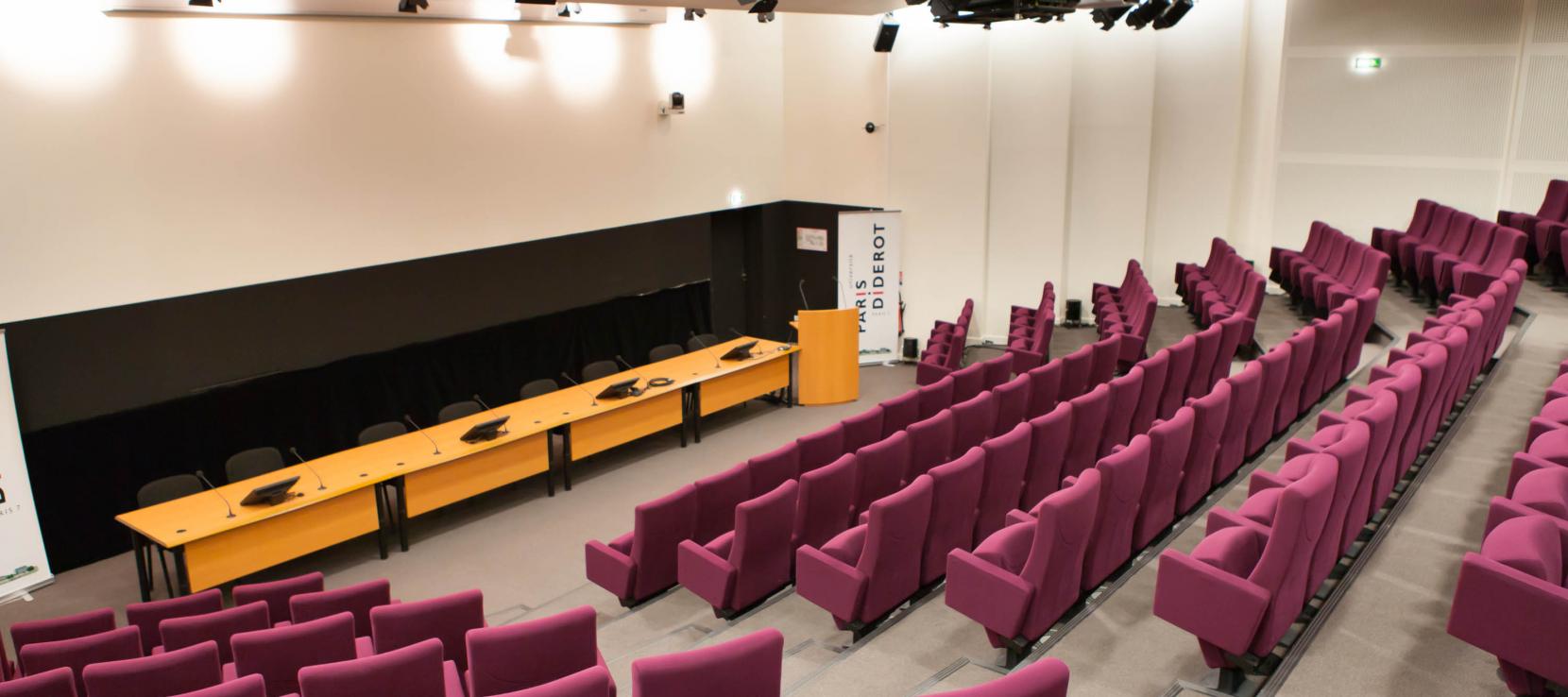
The accommodation center for the ExLing 2024 Paris conference is the Hotel Paris Ivry Quai de Seine, conveniently located close and with good connection to the conference venue.
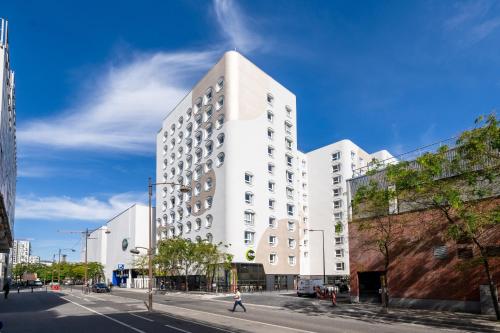
Conference registration
Registration for the ExLing 2024 Paris conference includes the following:
In addition to traditional onsite delivery, the ExLing 2024 Paris conference will offer the option of remote participation and online attendance for keynote and oral sessions.
Key Points of Registration:
Policy on Registration Non-Compliance:
Please Note: Adherence to our registration policy is crucial. Non-compliance may result in consequences such as refusal of entry to the conference or rejection of submissions. For any issues with the payment or registration process, please contact us at contact@exlingsociety.com for assistance.
Cancellation and refund policies
Registration cancellation and refund policies encompass various situations, including unforeseen circumstances like serious illness, natural disasters, or accidents. However, it’s important to note that there is one non-refundable registration fee for each paper included in the conference programme.
These policies are designed to accommodate standard circumstances and provide clarity regarding registration fees and refunds.
TBA
TBA
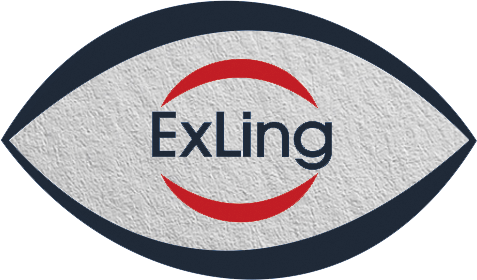
We follow the tradition to capture the moments and memories of the ExLing 2024 Paris conference for all participants to cherish. A comprehensive photo gallery featuring images from various presentations, program events, social gatherings, and general activities will be made available on the ExLing 2024 Paris website.
Relive the highlights, share memories with colleagues, and revisit the conference experience through our photo gallery. Keep an eye on our website for updates and access to the gallery. If you have any questions or specific photo-related requests, please feel free to reach out. We look forward to sharing these visual memories with you.
The ExLing Society Exhibition is a vital component of our annual ExLing Conference.
Language applications, including AI-driven technologies, are playing an increasingly crucial role in various aspects of daily life. The development of smart language processing tools—such as speech recognition, natural language understanding, machine translation, sentiment analysis, chatbots, and text-to-speech systems—has greatly benefited users of spoken, written, and signed languages.
Significant advances have also been made in language education (programming, performance, evaluation) and language pathology (diagnosis, evaluation, rehabilitation).
By bridging linguistic research and practical applications, the ExLing Society fosters and supports innovative initiatives and start-ups focused on the design and development of language education and pathology solutions, with a strong emphasis on AI-driven advancements.
Submit your one-page Language Application proposal by: 25 September 2024
All accepted papers for ExLing Conferences are published in the ExLing Proceedings series.
Papers should include unpublished original research, whereas papers in the ExLing Proceedings may later be submitted to book editions and journal publications.
The ExLing Proceedings reflect the ExLing Society’s commitment to promoting interdisciplinary research and international collaboration.
In our ExLing tutorials, established scholars from various fields of experimental linguistics present their latest research and exchange ideas with ExLing Society members.
These sessions unite major research centres, individual researchers, and research groups from around the world in an interdisciplinary and interactive environment.
The tutorials are designed to foster discussions on current approaches and methodologies, particularly providing young scholars with valuable opportunities to engage with and learn from experienced researchers.
The aims of our soon-to-be-launched Journal of Experimental Linguistics are multidimensional, focusing on the production of knowledge and the development of linguistic theory.
The Journal will highlight the welcomed use of robust experimental methodologies, as well as the advancement of linguistic applications—whether in language education, language pathology, or language technology—in the context of state-of-the-art research avenues and current societal requirements.
In our approach, experimental linguistics is the indispensable link between linguistic theory and language applications. Experimental methodologies are set up to address specific questions and alternative hypotheses, leading to empirical results that, in turn, enlighten linguistic theory or contribute to the verification of theoretical aspects and the creation of new ones.
ExLing Society
Sokratous 56
155 62 Athens
Greece
contact@exlingsociety.com
The International Society of Experimental Linguistics — ExLing Society — is a non-profit organization.
More about us
Copyright ©2024 ExLing Society
| Cookie | Duration | Description |
|---|---|---|
| cookielawinfo-checkbox-analytics | 11 months | This cookie is set by GDPR Cookie Consent plugin. The cookie is used to store the user consent for the cookies in the category "Analytics". |
| cookielawinfo-checkbox-functional | 11 months | The cookie is set by GDPR cookie consent to record the user consent for the cookies in the category "Functional". |
| cookielawinfo-checkbox-necessary | 11 months | This cookie is set by GDPR Cookie Consent plugin. The cookies is used to store the user consent for the cookies in the category "Necessary". |
| cookielawinfo-checkbox-others | 11 months | This cookie is set by GDPR Cookie Consent plugin. The cookie is used to store the user consent for the cookies in the category "Other. |
| cookielawinfo-checkbox-performance | 11 months | This cookie is set by GDPR Cookie Consent plugin. The cookie is used to store the user consent for the cookies in the category "Performance". |
| viewed_cookie_policy | 11 months | The cookie is set by the GDPR Cookie Consent plugin and is used to store whether or not user has consented to the use of cookies. It does not store any personal data. |
We are pleased to introduce The International Linguistic Society, a global platform for advancing linguistic research and collaboration.
Discover innovative conferences, research opportunities, and a network of experts shaping the future of linguistics.
Connect With Us Today
Join us as we embark on this exciting journey.
